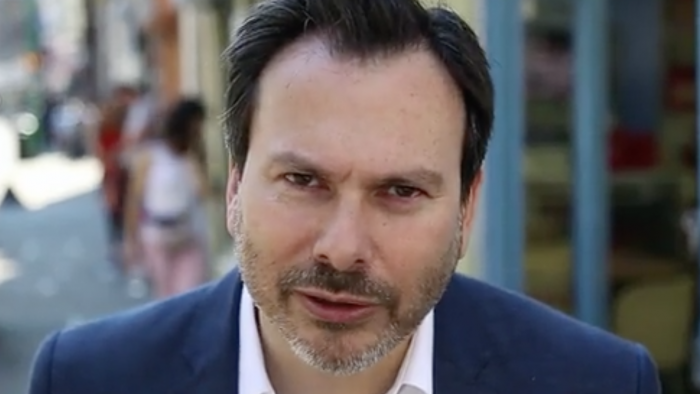In
his popular TED talk - Which
country does the most good for the world? – Policy advisor Simon Anholt asks
the question- why do some people prefer one country more than another?
Based
on years of study, he says, “the kinds of countries we prefer are good
countries. We don't admire countries primarily because they're
rich, because they're powerful, because they're successful, because
they're modern, because they're technologically advanced. We primarily
admire countries that are good. What do we mean by good? We mean
countries that seem to contribute something to the world in which we
live, countries that actually make the world safer or better or
richer or fairer. Those are the countries we like. This is a
discovery of significant importance — you see where I'm going
— because it squares the circle. I can now say, and often do, to any
government, in order to do well, you need to do good. If you want to
sell more products, if you want to get more investment, if you want
to become more competitive, then you need to start behaving, because
that's why people will respect you and do business with you, and
therefore, the more you collaborate, the more competitive you become.”
Working
with Heads of State and Heads of Government, Simon Anholt has helped more than
fifty countries to engage more productively and imaginatively with the
international community.
In 2014, Anholt founded the Good
Country, a project aimed at helping countries work together
to tackle global challenges like climate change, poverty, migration and
terrorism.
Measurement of Good Country progress is
done through Anholt's Good Country Index, the only survey to rank countries according to their
contribution to humanity and the planet rather than their domestic performance.
Since 2005, his research into global perceptions of nations and cities has
collected and analyzed over 300 billion data points.
In 2016, Anholt launched the Global
Vote a project that enables anybody in the world to vote in other countries'
elections, choosing the candidate who is likely to do most for humanity and the
planet: three months later over 100,000 people from 130 countries took part in
the Global Vote on the US Presidential Election. The Global Vote now covers an
election somewhere in the world almost every month.
In
this interview, he answers questions about positioning and responsibility.
How
important is a country's Good Country Index Ranking to its Soft Power Rankings?
I created the Good Country Index in 2014 because
analysis of the research I’d conducted during the previous nine years on
international perceptions of countries showed that the most significant driver
of a powerful and positive national image was the perception that a country
contributes to humanity and the planet, outside its own borders and beyond its
own population: what I call being a “Good Country”. If we define soft power as
a country’s ability to influence by attraction, then there appears to be a
strong and direct correlation between the two phenomena.
India
is culturally very rich and more diverse than any other country but her
rankings for Culture are surprisingly low. What determines cultural soft power?
It’s important to emphasize that in culture, as with
all the other rankings in the Good Country Index, we are not measuring domestic
achievements or assets, we are measuring external impact (and we’re measuring
it at a specific point in time, not attempting to take a historical overview,
which would be impossible to achieve in an objective way). The culture rankings
in the GCI are not a measurement of each country’s cultural heritage, they
provide an indication of the degree to which each country shares and spreads
the benefit of its cultural activities and resources, year by year, with the
rest of the world outside its own borders, and its contribution to the shared
wealth, wellbeing and smooth running of the international community in the area
of culture. So India’s undoubted cultural richness and diversity is not what is
being measured here: it’s the measurable extent to which this richness and
diversity is shared, in a given year, outside India’s own borders.
It’s also worth
stressing that the Good Country Index is entirely driven by hard data that
measures the actual behaviours of each country: it does not reflect mine or
anybody else’s opinions. This means of course that it is limited by the
available data: we use 35 datasets produced by UN agencies and other reputable
international organisations. Every indicator must measure the actual behaviours
of at least the 165 countries in the index, be conducted every year, and be
sufficiently robust, neutral, objective and scientific. Of course, many of the
behaviours that I would like to include just aren’t measured in this way, and
the Culture rankings are no exception: the Good Country Index can’t and doesn’t
claim to offer a complete and exhaustive account of what each country does,
it’s just an indicator.
The indicators
we use for the Culture rankings are: Exports of creative goods (UNCTAD's
Creative Economy Report categorisation) relative to the size of the economy;
exports of creative services (according to ITC's ‘trade in services’ categories
10 and 11) relative to the size of the economy; UNESCO dues in arrears as
percentage of contribution (a negative indicator); freedom of movement, i.e.
the number of countries and territories that citizens can enter without a visa
(according to Henley & Partners); and freedom of the press (based on mean
score for Reporters without Borders and Freedom House index as a negative
indicator).
India's
highest ratings are for health and wellbeing. Again what determines health ratings?
Once again, what we are attempting to measure here is
each country’s contribution to international health and wellbeing, not the
state’s provision of health and wellbeing to its own citizens (this is not, of
course, because I consider domestic behaviour to be unimportant – far from it –
but simply because such factors are already measured so thoroughly in so much
other research and there’s no point in my repeating all of that excellent
work). So the indicators we use in this category are: Food aid funding (according
to WFP) relative to the size of the economy; exports of pharmaceuticals
(according to ITC) relative to the size of the economy; voluntary excess
contributions to World Health Organisation relative to the size of the economy;
humanitarian aid contributions (according to UNOCHA) relative to the size of
the economy; and International Health Regulations Compliance (according to
WHO).
How
important is the setting up of cultural centres like the British Council or
Alliance Français?
Setting up cultural centres provides a valuable
resource for countries to share their cultural wealth with other populations
and is always to be encouraged. However, in my experience, the more such
initiatives are geared towards genuinely sharing national culture with others,
the more value they provide and the more popular they prove: cultural centres
that exist purely to promote a nation’s cultural assets and achievements tend
to be far less cost-effective. The UK’s British Council often refers to the concept
of mutuality: the idea that cultural relations works best when it’s about
sharing and mingling cultural engagement rather than promoting cultural assets
or achievements, and I endorse this view wholeheartedly.
What
role does Government play and what role does the private sector in diplomacy?
Whilst the private sector can play a useful supporting
role in cultural relations and even public diplomacy, it must be absolutely
clear that the profit motive can never be relied upon to coincide perfectly or
permanently with the national interest, still less the international interest.
So strategic and policy decisions should never be relinquished by government to
other players, no matter how expedient this may appear in the short term.
What
would your advice be for a country like India in improving her rankings...a
country which is ancient, peace loving and accepting of all cultures? She does
not make overt attempts to convert people's perceptions. Will that go against her?
I certainly do not encourage countries to ‘convert
people’s perceptions’, which I regard as a waste of time and money, as well as
being an unsuitable and undignified aim for a responsible government. A country
improves its rankings in the Good Country Index simply by doing a better job of
harmonising its domestic and international responsibilities: doing the right
thing for its own people and its own territory without harming – and ideally
benefitting – people and places beyond its borders. This is the only way that
the community of nations can survive and prosper in the coming years. “America
First”, “India First” or “Britain First” is a frankly suicidal approach to
governance in the twenty-first century, as long as it means that everyone else
needs to come last: the real challenge is helping everyone to come first. There
is no doubt that if India strives to harmonise its domestic and international
responsibilities, this can do nothing but benefit its international standing:
put simply, it will make people around the world feel glad that India
exists.
How
important is economic and military influence in Good country rankings.
A country tends to rise in the ranking of the GCI if
it uses its economic and military power to help make the world work better (so,
for example, participating in UN peacekeeping missions will improve a country’s
rank whereas causing deaths outside its own borders in other conflicts will
reduce its rank).
Can
evaluators and rankings agencies be truly sensitive to indigenous cultures?
Since the Good
Country Index focuses exclusively on the external impacts of countries, the
amount of sensitivity shown by any individual government towards indigenous
cultures will not affect its GCI ranking. Again, it should be stressed that the
reason why I don’t measure this factor in the GCI is not because I think it
unimportant – quite the contrary – but because the purpose of this particular
index is to measure each country’s contribution to the international community
rather than towards its own people. There is a good deal of research conducted
each year on such purely domestic issues, and I would recommend that anyone who
is interested in comparing countries on this basis should refer to this other
research.
(Anholt is an Honorary Professor of Political Science
and the author of five books about countries, cultures and globalisation. He is
the founder and Editor Emeritus of a leading academic journal focused on public
diplomacy and perceptions of places.)





